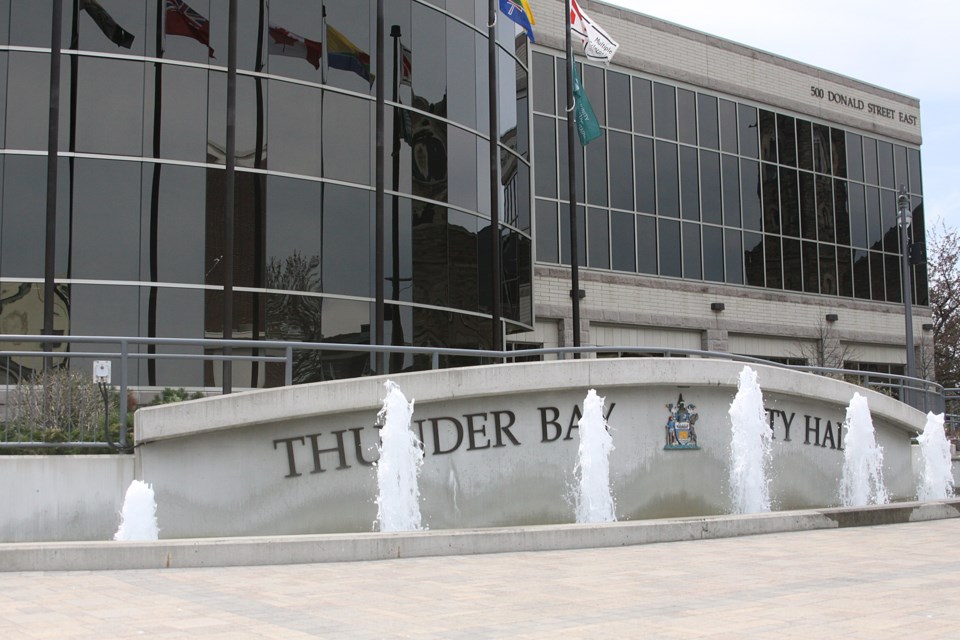THUNDER BAY – City council has moved to restrain municipal tax increases, directing administration to limit the tax levy hike to 2.25 per cent as they prepare the draft 2022 budget.
Staff had recommended a 2.75 per cent increase, but an amendment to lower the figure from Mayor Bill Mauro passed 7-4 at a Monday council meeting.
A minority of councillors worried the city’s ability to maintain service levels and meet infrastructure needs could be in danger without raising additional tax revenues.
Administration estimated it will need to find roughly $2.6 million in savings and/or new revenues to reach the 2.25 per cent target.
That won’t come without “pain,” city manager Norm Gale told councillors, but said it was too early to indicate what form that pain would take.
“When we recommended 2.75 [per cent], that was after long debates amongst our team,” he said. “We thought we hit the sweet spot.”
Coun. Andrew Foulds opposed Mauro’s amendment, saying the 2.25 per cent target was reached without a clear rationale and could result in harmful cuts.
“We’re picking numbers out of a hat and not being transparent about what that means to the public,” he said. “If I were to support 2.25 [per cent], I don’t know what the reductions in service will be, I don’t know what capital projects won’t be done.”
The Current River councillor said he’d rather see a list of options to reduce the levy increase to 2.25 per cent, so the implications could be debated publicly.
Mauro argued it was council’s role to push administration to find savings. He said the lower target is in line with previous budgets approved by the current city council, all three of which have featured levy increases below two per cent, after growth.
That’s a change from the previous council, which approved increases above two per cent and sometimes above three per cent, Mauro pointed out.
The results show the importance of council setting firm fiscal targets, he argued.
“I was encouraged that administration came back with [the 2.75 per cent target],” he said. “My first year in the chair, they told me they were bringing a draft budget book for 2019 starting at [a] five per cent [levy increase].
“I immediately said, that’s just a non-starter… From the beginning, I’ve been trying to drive a little bit more of a conservative fiscal approach to our budgets.”
Many residents are feeling the strain of property tax bills, especially single seniors, the mayor said.
A handful of councillors urged caution in limiting tax increases.
The hikes appear larger than they really are after accounting for inflation, said Coun. Cody Fraser.
And while councillors may be driven by a desire to keep taxes low, he expressed concern over the city’s failure to keep up with infrastructure needs.
Coun. Shelby Ch’ng suggested the move to contain tax increases would leave the city unable to adequately meet demand for services. Despite concerns over tax increases at budget time, she questioned whether the public truly wanted lower taxes.
“They say the city’s overspending, but nobody’s told me what [it’s] overspending on – they just give me a list of things they don’t like,” she said.
“Then the rest of the year, all I do is get calls about getting more bylaw officers, more police officers, so what is the direction? I don’t think this amendment gets us closer to what the public actually needs or wants.”
Mauro’s amendment passed 7-4, with councillors Ch’ng, Foulds, Fraser, and Brian Hamilton voting against (Rebecca Johnson and Brian McKinnon were absent).
Council’s appetite for cuts proved limited: an amendment from Coun. Peng You to reduce the target further, to two per cent, died after failing to find a seconder.
The motion as amended passed 9-2, with councillors Foulds and Ch’ng voting against.
Targets for the draft budget were driven by factors including a forecast of low assessment growth of just $300,000, a planned five per cent boost to base capital funding, increased costs for public health and Superior North EMS, and a $2.8 million tax-supported surplus from 2020.
Financial implications of COVID-19 have been excluded from the tax levy projections, with any costs to be funded from the stabilization reserve fund. That impact is currently projected at $700,000 after accounting for provincial and federal aid.
The increase to the city’s tax levy does not directly correspond to the increases property owners see on individual properties.
